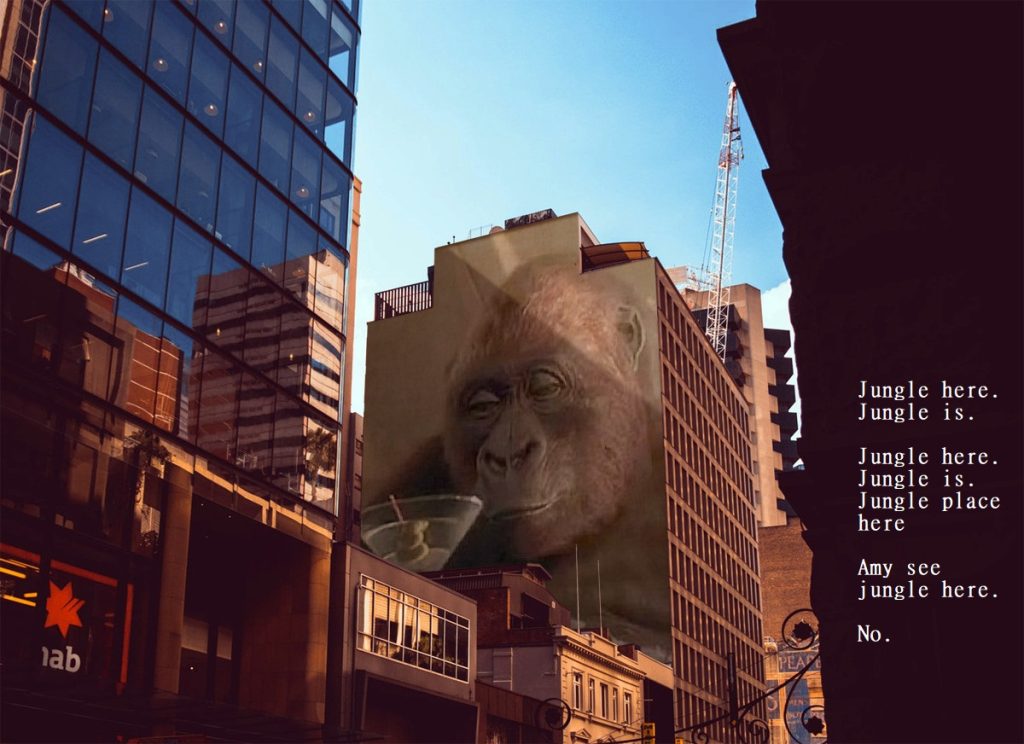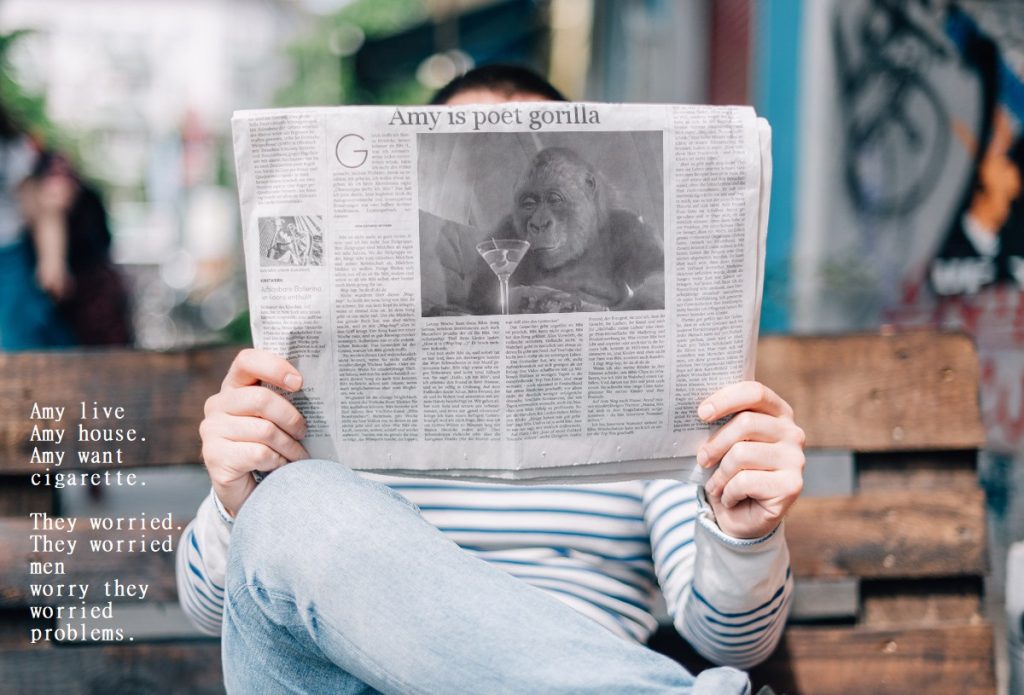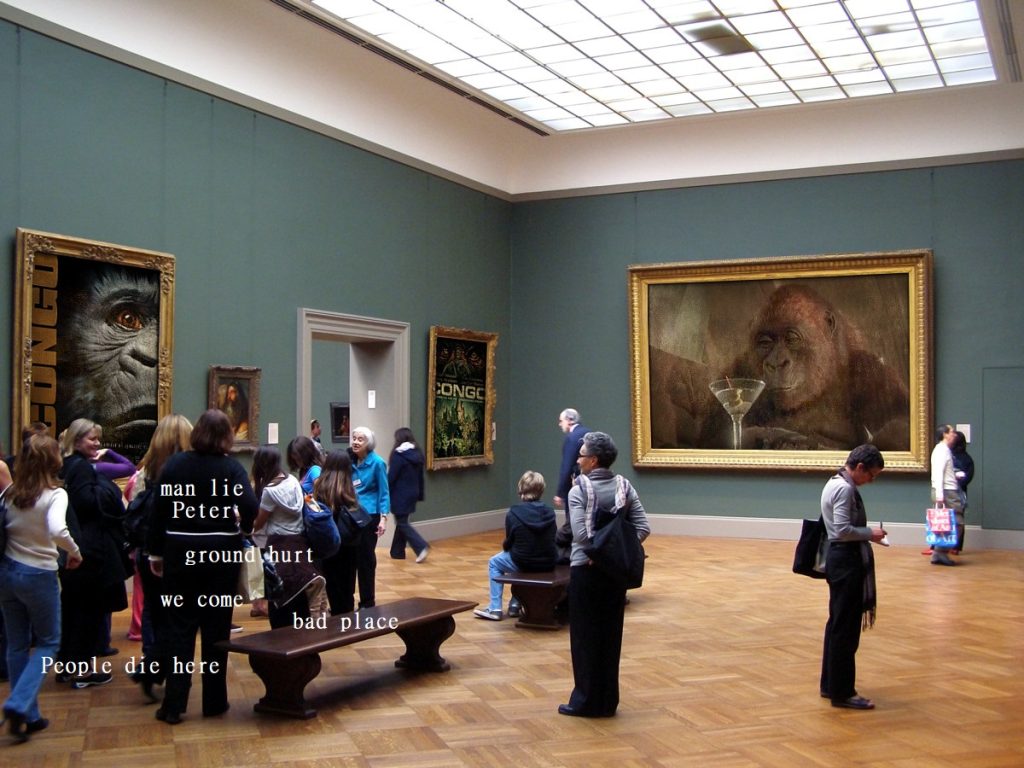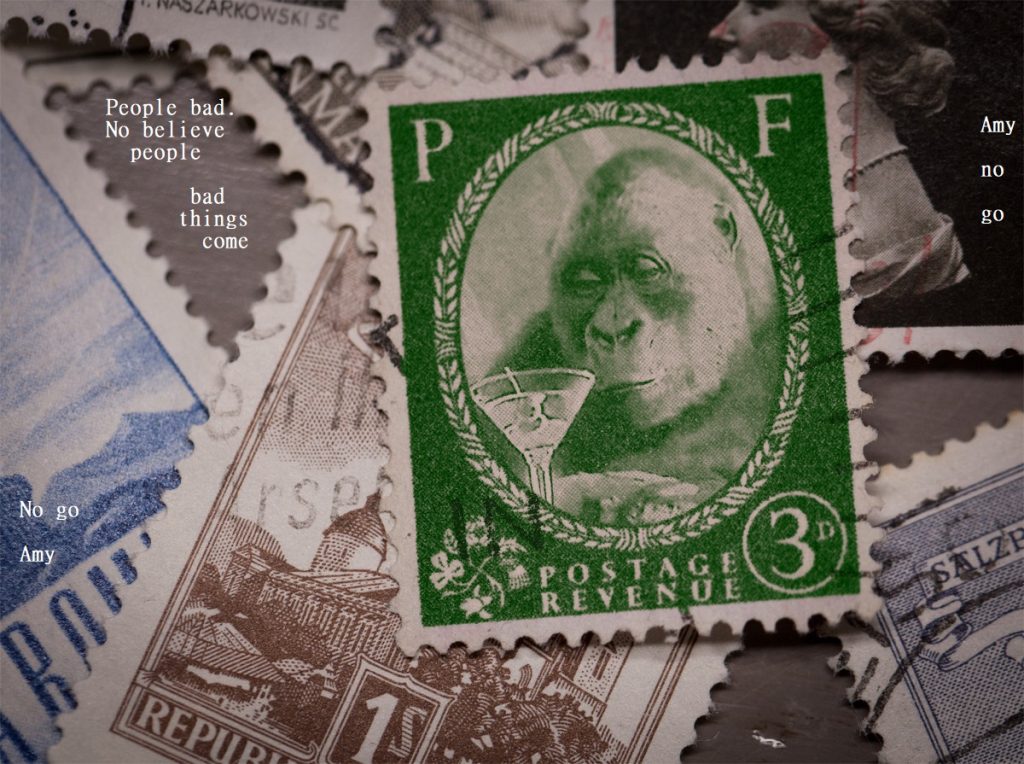A Dream In a Requiem it reminds me the time I took remnants of my soul—to sail the river of memories, to the world where deads vomit tears and saliva, where a river has nothing to offer but a skull of its dead son. I, once heard a story of how the soil married a seed; and how men enthroned themselves to the bed of kings in the hell. when the clock is asleep— men grow wings to witness how an anthill transforms into mountain–how it bloom flowers that turn red, pink and blue, black. now, tell me how our name fades & how we'd paint our eyes red? Mubarak Said is the 3rd runner-up of the poetry category of the 2022 Bill Ward Prize for Emerging Writers. His works are forthcoming and published in many literary magazines national and international as imspired magazine, Afrihill press, World Voices Magazine, Icefloe Press, Literary yard, Beatnik Cowboy, Piker press magazine, Teen Literary Journal, ILA magazine, Icreatives review, the yellow house magazine, williwash magazine, Pine Cone Review, Synchronized chaos, Susa Africa, madswirl magazine, Applied Worldwide, Opinion Nigeria, Today Post, Daily Trust, Daily Companion and elsewhere.
Category Archives: CHAOS
Poetry from Tajudeen Muadh Akanbi
OUR HOME IS BLEEDING
And night comes like a thief, with a gentleness that caresses
the eyes with a gleaming broken ray written on a brittle glass
disappearing into the horizon like broken sparks of flames,
and then night falls like stars ready to devour our hopes.
The afternoon is dead with barrows lurking in our palms ,
Our dreams down like a warzone burnt into ashes by the
Bombings in our tongues and throats which our hearts can only hear.
It is a cold coming, our dreams of having a brick over our dangling head,
Ready to be broken into pieces by the muzzle under the bomb of bazooka.
Let there be hopes as the gwagwalada river flows in the tacit lust of
Our cauliflowers_ drips of the night’s velvets on our sparkling rivulents.
Can we be pieces and faces bonded by unity and aspirations of better future?
Can we be the race with our wings not sunken with only dreams?
Can we be the home to the sweats and blood of our own self?
After this and thats, we could only cuddle our broken spirit in that cocoon
Buried underneath our blankets.
Let there be a NIGERIA with realms of aspirations in our blood,
Let the great labor of our heroes be not in vanity washed in pain.
Let there be a nation free from the cuff of servitude and pain.
Tajudeen Muadh Bayo, lightening pen X, is a poet from Nigeria. His works appear forthcoming on magazines including Afrihill Press, Scars Tv and others. He’s also a member of the Hilltops Creative Arts Foundation.
Poetry from Christopher Bernard
The Winter of 2023 By Christopher Bernard The winter of 2022 a wind of iron and crystal blew. In spring a gale attacked the park Shredding his last piece of heart. In summer’s dead zone he did dwell Till rain and frost bathed fever’s hell. Now winter has come round again. The twisting seasons never end. The winter of 2023 A white hand swept across the sea. A palace of ice rose in the east, Towers of snow in a waste of peace. The year before it leaves a scar Of fire and talisman of war. It leaves behind a memory Sweet and bitter as dark honey. _____ Christopher Bernard’s latest collection of poems, A Socialist’s Garden of Verses, won a 2021 PEN Oakland Josephine Miles Literary Award and was named one of Kirkus Reviews’ “Top 100 Indie Books of 2021.”
Essay from Jaylan Salah
What the Man who Laughs can Tell us about Masculinity By Jaylan Salman Silent cinema is a mystery to generations that have gone way past the missing dialogue and artistic expression. But as the filmmaking process progresses and avant-garde art dominates a rather dull cinematic world after the introduction of online platforms and networks that exist purely in cyberspace, seeking different and more experimental forms of cinematic experiences has become -strangely- more mainstream. The origin of the Joker character started in the silent film, giving it a hint of popularity. However, the idea of disfiguring men playing roles that hover on the verge of sympathy vs. non-sympathy could tell a lot about modern society when seen through the light of a politically-correct-driven cinema. Lon Chaney and Conrad Veidt were two actors recognized for their aggressive masculinity that existed between machismo and the dream-pop verse of soft boys. In their roles, they played dark men, haunted and wounded by society’s addiction to normative beauty aesthetics. As part of the interloping male/female gaze, beauty ideals demanded that Lon and Conrad become misunderstood monsters. They had to play the classic man-monster trope in a Classic Hollywood setting without missing the romanticized touch in the later films. To use Conrad in the classic film version of “The Man Who Laughs” is to subvert our vision from his heinous features to what is more or less masculine representation onscreen. Chances are, man-monsters have been a fascination for centuries. In worlds such as Victor Hugo’s novels, man-monsters are deformed masculine figures, usually crossing paths with fragile, rather petulant women who either defy their independent aesthetic “ugliness” or seem undeterred by it. “The Man Who Laughs” is not an exception to what Hugo considers ugly, encouraging readers or viewers to judge these characters for their looks, even if their qualities usurp the physical. His cruelty in creating the malformed men-beasts of his writings encompasses a more nuanced analysis of the social and political contexts in which his stories existed. Enter “The Man Who Laughs” L'Homme qui rit, a less popular novel by Victor Hugo which uses the bored French noblemen and the absurd playfulness of the aristocracy as a social critique of classism, aesthetics, and in many ways, ghoulish masculinity which dominated novels of the romanticism era. This essay tries to draw a comparison or rather a constructive analysis of representing the main protagonist Gwynplaine in the silent 1928 film and the 2012 musical version through both actors chosen to play him and what that tells about modern masculinity and bestiality. In other films where the human monster appears, it’s through the lens of the bizarre, this carrier of a penis wreaks wrath and fear into the hearts of the fine ladies of the black and white (or silent) cinema. He is feared, despised, and “othered”. The monster is the mutant anti-hero to the chiseled chad. For Batman, there’s the Joker and the Penguin. For James Bond, there’s Alec Trevelyan and Le Chiffre. But in the 1928 “The Man Who Laughs” the mutant man-monster is seen through a sympathetic lens, played by Conrad Veidt, a German Lon Chaney who specialized in the physically displeasing characters who reigned the German Expressionist films in the 1920s. The demonic grin and crazy eyes contrast with the enforced laughter and mirror Gwynplaine’s abstract torture of being forced to live with his expressionist face while using his eyes to try and reveal his internal agony. Veidt could not be a better actor to embody the brutal fragility of Gwynplaine, his eyes trapping a thousand emotions, all suffocated through his emblematic Glasgow smile. As a silent-film performer, Vedit uses extended poses, stalled gestures, muscular control over the fluency of movement, and extreme crookedness in posture followed by sudden, erratically paced movements. His performance is an extreme expression of the character’s inner conflict conveyed through eye contact, body quivers, facial tics, and a body motion that oscillates between the stifled and the frantic. Veidt’s Gwynplaine is a rare breed of masculinity, one that does not comprise a menace to society. It is neither inviting nor appealing, it off puts rather than revels in the charm of the ugly. His relationship with the female protagonists. In 1928, the love story between Gwynplaine and Dea feels like a gothic dream; bestiality turned into romance. While in the 2012 version, the plotline that involves their love is more nuanced and erotic, using both actors’ sex appeal in their favor, creating a story that is both poetic and earthy. The 2012 French adaptation has clear Tom Tykwer vibes, although directed by Jean-Pierre Améris. The influence of color and atmosphere, as well as the larger-than-life exaggerated depiction of the English aristocracy, has given it a different dimension than its silent 1928 counterpart. It started with picking the actor who played the main protagonist, Canadian androgynous heartthrob Marc-André Grondin as Gwynplaine, and through the complete transformation of the main protagonist casting choice, the film took a dramatic shift toward an undeniably interesting -if a bit less mystique- angle. Grondin is handsome, dark, gender-bending, and homoerotic. Jean-Marc Vallée’s c.r.a.z.y, a coming-of-age tale that saw Grondin being the archetypal dreamboy/softboy within an LGBTQ context, solidified his softboy and fluid form of masculinity. Grondin as Gwynplaine had nothing to do with Veidt’s. This 2012 version of Gwynplaine was handsome in an “imperfect way”, taking the film narrative afresh. The 2012 Gwynplaine was fragile, emasculate, beautiful, and scarred. The movie portrayed his love story with Dea in an ethereal, dreamy sense, unlike the 1928 version where Gwynplaine was fearsome, appearing to emerge from a nightmare, his face a work of art that hid behind it layers and layers of repressed fear, torment, and agony. In the 1928 version, Gwynplaine could barely move a facial muscle. In the 2012 version, Gwynplaine could reveal himself through his semi-deformed face, the spectrum of human expressions “happiness, fear, sadness, and love” evident on his features regardless of his mutated cheeks and lips. The silent film medium of 1928 created a symbolic meaning of how Gwynplaine was used and abused by the haunting presence of the people around him. It glorified its freakish looks, unashamed of being attacked by a better understanding of the language or depiction of a non-normative person regarding beauty standards and aesthetics. Using words like “ghoulish,” “freaky,” and “ugly” with liberty to describe this silent version of Gwynplaine in which director Paul Leni reveled in his protagonist’s disproportionate features that defied what it meant to be wholesome and complete. But in the 2012 adaptation of Hugo’s novel, Gwynplaine had a voice and thick luscious black hair and dazzling eyes, his Glasgow smile merely an afterthought, a meditation on what it meant to be freaky and not freaky, as if Gwynplaine walked the thin line between normalcy and bizarre. To say that one version is better than the other is a mistake or -for better lack of terms - a problematic way of evaluating cinema as an art form. The Man Who Laughs conjures a sense of French cinema with the grimness and intolerable cruelty of Victor Hugo’s politicized commentary on aristocratic society. This separates the art from the artist, the film interpretation and adaptation from the heart and soul of the filmmaker’s intent. The Man Who Laughs might not be a timeless story, but its adaptations are a revelation and necessary for lovers of film and art worldwide.
Photography from S.J. Fowler






SJ Fowler is a writer, poet and performer who lives in London. His work aims to encapsulate an expansive understanding of what poetry and literature can be – exploring the textual, visual, asemic, concrete, sonic, collaborative, performative, improvised, curatorial – through 40 publications, 200 performances in over 40 countries, 4 large scale event programs, numerous commissions, collaborations and more. His work has been commissioned by Tate Modern, BBC Radio 3, Somerset House, Tate Britain, London Sinfonietta, Southbank Centre, National Centre for Writing, National Poetry Library, Science Museum and Liverpool Biennial amongst others. http://www.stevenjfowler.com
Poetry from J.T. Whitehead
from "The Second Book of Job" I. Everyone gets to be Job for a year. Or more. Gets to feel that trembling and fear of losing it all, watching it get lost. Everyone learns that lesson. Knows that cost. You’re not alone when the divorce lawyer warns about the marital home. Or you’re not alone, when you learn another boss governs the universe – and not you. Loss is inevitable. But it’s what’s next that no one remembers. We get the shit. We forget the growth. So never forget that in the end you might just get a sexed up mate who loves you more than anyone who ever did. With all those others done. * from "The Second Book of Job" II. Job Junior lost the marital home when He and his Ex- were in arbitration and this clause became paragraph 3 (B), in the Clerk-filed dissolution decree, cause 49 dash 33, CV, and a “you” and an “I” replaced a “we.” He transferred thirty-eight thousand dollars, and he intuited things could be worse, much worse. Put one thousand books – poetry, Literature, drama, philosophy – Into storage. He took the last unit, next to the dumpster, the only model not re-modeled. Sat down with a bottle on the porch. Impoverished and moonlit. * from "The Second Book of Job" III. Job’s losses left him as blind as Homer or Milton and now he is the owner of very little. Someday his awareness will match that of the poets. He has less to carry homeward, and has no homeward to speak of. It’s impossible to look back without becoming frozen. His Book is closed. To lose faith, okay, but the Word? It was lost as well. So at the machine, for a spell, staring at the keys, the screen, and his hands, it all came out gibberish: “NIGHT OLD MAN HATE MONEY WHITE LUSTY DISH. . .” For now, it was just blindness, no insight. That spirit of Homer would have to wait. * from "The Second Book of Job" IV. This particular Job, losing ‘The Word,’ just let it all rip and let it all out. Typed away. Just squeezed out every turd that fell out of his mental ass. About midnight he filled three pages’ worth: HOTEL BILLS . . . SAME ROOM . . . WEDDING NIGHT . . . HORSE TRACK . . . ROUTE TO THE HEART . . . MILLIONAIRE . . . HE GETS IT . . . FREE LOVE . . . MONEY FOR THE PONIES . . . YOU SAY MORE ANAL . . . TALK ABOUT THE SECOND BIRTH . . . I WAS NOT THERE FOR THE FIRST . . . TAKEN BACK IN TIME . . . DIRTY UNDERWEAR . . . ODD DEBTS . . . SHIT . . . WHAT’S HAPPPENING . . . DO I DOUBT . . . DO I PRAY . . . HELL . . . PURGATORY . . . PURGATORY . . . HELL . . . But she was gone. He knew things would end well. * from "The Second Book of Job" VI. Another Job lost seven days with each of 2 sons out of every two weeks. “Fifty-fifty fair” made it hard to bitch but he did anyway, however weak it left him feeling. And the Ex- would switch this day for that day so many days that he recognized a slow, distinct leak in his clock, his calendar, in his haze. Sanity was a thing now out of reach. There was no point in trying to talk her into paying back time. This was not her M.O. And he couldn’t pay the lawyer. He recalled the man in the coat, the wind, the Sun . . . that fable would win in the end. * from "The Second Book of Job" VII. Another Job lost his credit rating. His wife decided to have an affair with Neiman-Marcus, or women’s clothing, generally speaking. A millionaire was the last affair. It was spending power. That was the deal. In an icky hour in a hotel room beneath his pay grade he allowed her equal status: she paid. Savings accounts and college funds went down. He learned her weakness was the winning horse. Wads of fives and tens turned up in drawers. (It takes a lot of paint to paint the town) This Job inherited: a millionaire. Grew bored with the track. But loved the clothing.
Poetry from Nilufar Rukhillayeva

On the wings of dreams
Nilufar Rukhillayeva
a student of the National University of
Uzbekistan named after Mirzo Ulugbek
Dreams are a way to get into a world where you are happy.
Some people think that dreaming is stupid, others just live with it. Scientists have come to the conclusion that the ability to dream is one of the main characteristics of a successful and happy person. Probably, there is no person in the world who has not indulged in dreams at least once in his life. It all starts from childhood – thoughts about the future appear in our clear heads. Psychologists say that in this way the formation of the child’s thinking takes place, the imagination of a small person develops. They also point out that most children’s dreams are illusions that are unlikely to ever come true. But this fact does not bother the little ones, they have a short memory of blessing and disappointment. Thought streams are formed in their heads, and what is happening now, right now, is important to them. Everything else flows like a river without a future or a past.
It’s hard to live without a dream,
There is a consequence, everyone step.
Good, bad, big, small,
Everyone has their own dreams man
So that a person does not get tired of living, a world of dreams is given to his heart. There is a human race that wants to satisfy the dreams that he was born with every moment. To live in life, only the dream itself is lacking. If you are asked, “What is your biggest dream?”, you will be silent for a moment. I wonder if the dream can be big or small? as it changes depending on how it looks. A dream is not a whim. It is the pillar that has caused humanity to reach the present day. What is the human dream not good for, you say?!
I have heard a lot that “Everything depends on the intention”. As a person grows up, his desire to “return to childhood” replaces his dream. A person with big dreams requires effort to achieve his dreams. As for my dream: Patience to man! If the element of Patience leads a person, then there is one step left to achieve the dream and achieve success!
Dreams,
Dreams that are stretched to the height of the sky,
In flight, the falcon smelled
Dreams.
bursting like fire
stung like a deer
The wave hit and swam like a wave
